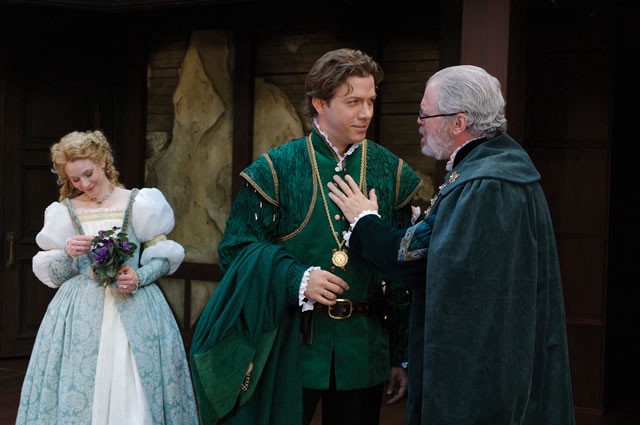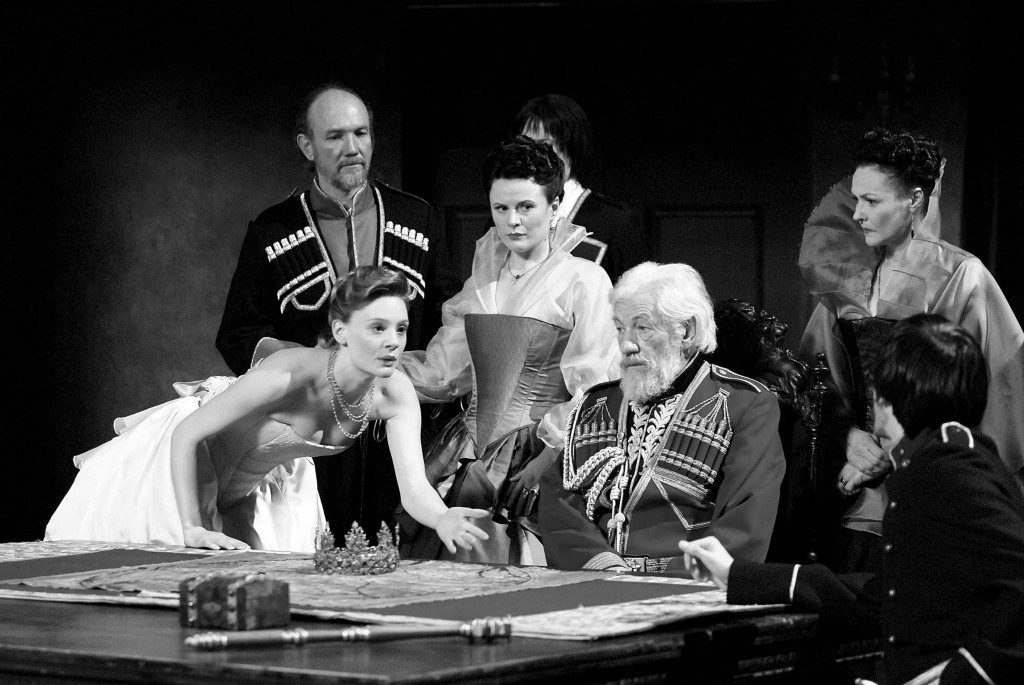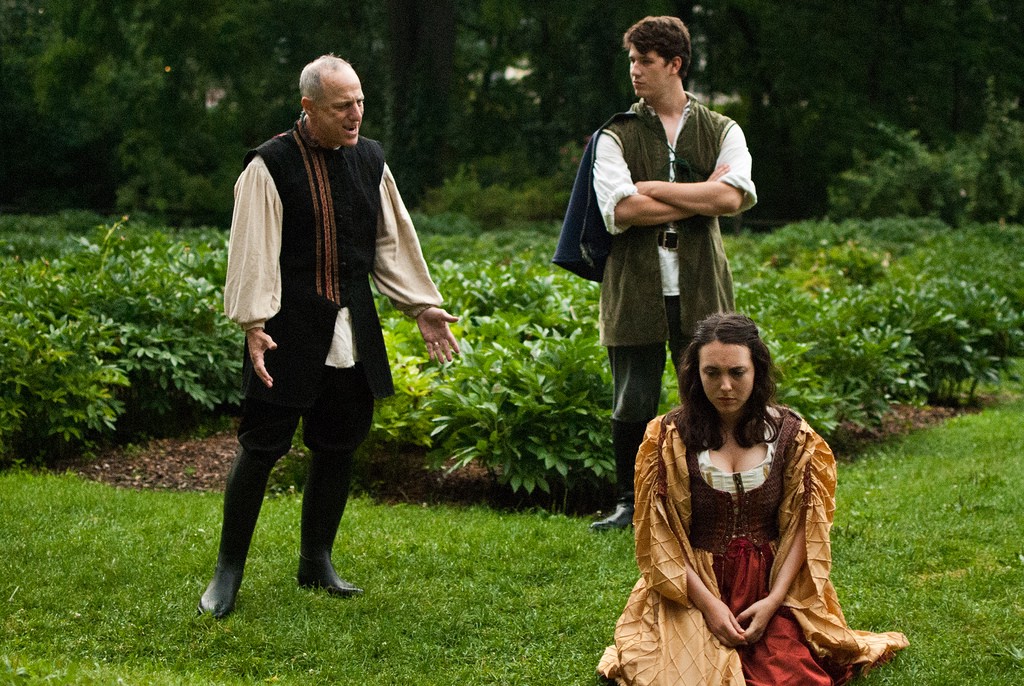Reading Lists
Who Was the Absolute Worst Father in Shakespeare?
A definitive ranking of the Bard’s worst patriarchs in all their emotionally abusive, arguably criminal anti-glory.

If the literature is any indication, the Elizabethan era was probably not the best time to be a “good” father, at least by today’s standards. While we may be thanking our own dads this Father’s Day, all Shakespeare’s characters have to be grateful for are ruined childhoods, emotional abuse, and bartered love. In the 1500 and 1600s (not to mention the historical and mythological periods in which Shakespeare set so many of his plays), the paterfamilias dictated everything from the the family’s coat of arms to its holiday travel plans. Oh, and marriage? You better believe that was the father’s call. In short, only complete submission and respect was tolerated from children.
In tragedies and comedies alike, Shakespeare shows us that fatherhood came with a lot of responsibilities, including selling your daughter to the highest bidder. Shakespeare not only nailed the expectation for obedience in his works; staying true to universal teenage rebellion, most children in his plays are not on board with their controlling fathers’ ridiculous demands.
For this Father’s Day, here’s a rogues’ gallery of Shakespeare’s most famous patriarchs. We’ve tallied up their sins and ranked them, from the sort of unpleasant, overbearing, or bloodlustful to the outright dastardly. Warning: a good deal of this behavior would now be considered criminal; in other cases, the fatherly transgressions are still very much a part of our culture. From nonstop hovering to threats of exile, the playwright’s works lay bare (some) tropes and truths of fatherhood that simply seem to transcend time.
— From lousy to worse…

9. King Hamlet from Hamlet
All things considered, King Hamlet is the best of a bad lot — mainly because he isn’t around all that much. Appearing as a ghost to a number of the characters, his interactions with his son (other Hamlet) is mainly focused on avenging his death. It’s hard to be a good father when you’re busy calling out for blood and harping about your wrongful murder, but the King does his level best. Is he taking his son on camping trips or teaching him how to drive stick-shift? No, but then again he does care enough to return from the afterlife.

8. Prospero from The Tempest
Prospero, the former Duke of Milan and father of Miranda, seems to have his daughter’s best interests at heart, which makes him an all-around decent parent. Because they are stranded on an island, he acts as both a father and mother figure, telling Miranda, “I have done nothing but in care of thee, of thee, my dear.” Despite their removed setting, they still can’t escape those pesky old-fashioned norms, which dictate that Prospero choose Miranda’s husband. All in all, his overbearing nature is minimal compared to the other patriarchs. Plus, he gets points for being able to perform magic tricks to keep things entertaining on those long, lonely island nights. His cruel and inhumane treatment of Caliban, on the other hand, is another matter and pretty unbecoming of a supposedly decent dad.

7. Polonius from Hamlet
Polonius is a classic helicopter parent: annoying but reasonably decent. Despite his mouthiness and nosiness (yes, that rare combination), I can’t help but see some sincerity in his preoccupation with Ophelia and Laertes. When Laertes departs for France, he gives him fatherly wisdom before having his servant go and spy on him to ensure that he is behaving morally. Still, he tells him “to thine ownself be true,” a piece of advice fathers are giving their children to this day. The advice only goes so far, unfortunately — both his children end up dead, like just about everyone else in this play.

6. Leonato from Much Ado About Nothing
It’s hard to determine whether Leonato’s fatherly intentions are as true as Prospero’s. Like most other Shakespearean fathers, he is completely controlling of his daughter, Hero. Despite a vast difference in age, he tells Hero to welcome the advances of suitor Don Pedro. Yet, when a rumor is spread that Hero is no longer pure, he is both outraged that his daughter is unchaste and affronted that people are talking negatively about his child.

5. Lear from King Lear
King Lear’s insecurity is certainly to blame for his questionable expressions of fatherly “love.” Or, his dream of being king while his children handle the responsibilities of the position simply drives them further away. Lear stages a test of flattery to determine which of his three daughters loves him most (and who he can give the biggest piece of the kingdom to). After Cordelia refuses to participate, he orders her out of the kingdom, then proceeds to throw the king of all tantrums and eventually descends into madness. Essentially, Lear and his children manage to turn a family squabble into all-out civil war — all in the name of (basically) a minor filial rebellion. Typical.

4. Baptista from The Taming of the Shrew
In typical Shakespearean father fashion, Baptista spends way too much time interested in his children’s love lives. Thankfully, while his daughters, Bianca and Katherine, don’t have to suffer through any sort of love tests, Baptista isn’t opposed to shamelessly taking bribes from their suitors. In a scene that results in him looking pretty damn foolish, he is duped by a costumed suitor who runs off with Bianca. Ah, karma.

3. Brabantio from Othello
Brabantio takes the “disapproving father” trope to a whole new (horrible) level. Although he humors Othello by inviting him over to his home, Brabantio does not think it’s possible she actually fell in love with him, short of being drugged or bewitched. Thus, in a charming combo pack, Desdemona’s father is both racist and sexist. Lovely. Thinking his daughter to be his property, he is terrified of her interracial marriage. His solution? He disowns her after unsuccessfully trying to strip Othello of his title. His only redeeming fatherly act is that he dies of grief upon his daughter’s escape.

2. Lord Capulet from Romeo and Juliet
Lord Capulet is a pretty horrible father, mainly due to his short temper and itchy finger (yes, that’s his own twisted euphemism for an inclination toward child abuse); he takes Brabantio’s manipulation to a whole new level by making emotional and physical threats. The father of Juliet, he seems like a good dad at the beginning when he shoos away Paris’s advances after his much-too-young daughter. However, his character quickly deteriorates in the eyes of the audience when he finally allows Paris to propose to her and her refusal throws him into a rage. He’s not too great at giving compliments, either. So fed up with her, he says, “Out, you baggage, / you tallow face.”

1. Egeus from A Midsummer Night’s Dream
Fatherhood may not be Egeus’s strong suit, but threatening people sure is. The worst father of them all, he’d rather not have his daughter around than have her disobey his orders. Egeus tries to keep Hermia from marrying the love of her life, Lysander, and instead urges her to marry Demetrius. So intent on controlling her, he demands that her punishment be the death penalty should she not comply with his orders. The Duke of Athens, Theseus, has more mercy on her than her own father, reducing the sentence from death to exile to a nunnery.
10 Fictional Mothers Who Will Make You Thank God for Yours









